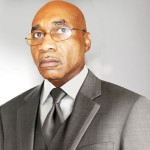
Knowing quite well that all Christian churches are Bible-based, would there be such thing as the “African Church’ or “African Pastor” in America? Of course yes, and I would illustrate with practical examples.

A Lady who called our newsroom some time ago needed help with a Nigerian Pastor who could preside her Dad’s wake-keeping. When asked about her own Pastor, she said she attends the Lakewood Church. Without going any further, I Googled the Lakewood and texted her one of the listed numbers. I could notice she called an hour later, but I did not pick up.
My action was explainable. Though we serve the same God, it might be unfair to devout our time and resources to Church ‘A’, and go to Church ‘B’ for community benefits.
But this clearly explains the difference between community worshiping and the mainstream churching. African churches are community-based and play the role of the ‘family’ among worshippers. Worshippers share similar problems; sing and praise with similar dialects and accents; share similar spiritual values, and enjoy an unprecedented closeness with their Pastors.
Everybody who attends a community church has the Pastor’s direct phone number and could always call them for every little problem. Spiritually, we sometimes need to call our pastors for a minute, just to agree to a prayer point. Jesus said, “…if two of you on earth agree about anything they ask for, it will be done for them by my Father in heaven. For where two or three gather in my name, there am I with them,” (Matt 18:19-20). Community pastors are always available for this brief and ritual. These privileges are definitely unaffordable with the mega churches. In fact, most worshippers in this big churches hardly, physically see their Pastors, except on big High Definition screens mounted all over their worship areas.
Therefore, the African or Nigerian Pastor often called “Daddy” or “Mummy” remains an embodiment of hope, influence, and guardianship among congregants. Just like the charismatic leader, they carry their members along as family and partners, and imbue them with spiritual level of organizational citizenship.
That explains why their service may last for hours if not the whole day. They would sing praises like there is no tomorrow; share lunch after church, and hold down the Pastor for more hours of counseling and devotion. That is the African Church in Americas; an enclave of sanctity, where prophetic powers and revelation makes sense.
Therefore, the African or Nigerian Pastor often called “Daddy” or “Mummy” remains an embodiment of hope, influence, and guardianship among congregants. Just like the charismatic leader, they carry their members along as family and partners, and imbue them with spiritual level of organizational citizenship.
An average African Pastor is a Prophet, and would look at a congregation member and tell her all about that job interview coming up on a Wednesday; or assure him or her of that Green Card which has been in process. And all those come to pass, as members often testify their blessings.
Last, in an online forum which I moderate, I have always come across complaints in form of questions, on why there are so many African churches or why Nigerian churches are all over the neighborhoods, outnumbering the McDonalds, and Subways. For Clarity, Nigeria is a country in Africa.
The good news is that they are churches and not motels or 99 Cent stores. Before, in the late 90s, we complained about our neighborhoods being suffused by cheap motels and body hawkers who patronize them. The truth is that if we, as a community do not invest in our worship centers and sow unparalleled seeds to encourage more Nigerian or community-based churches in our neighborhoods, the Indian unscrupulous hotel investors would inhabit those intersections with more motels, and whore houses. Now, it’s your choice on which you prefer.
♦ Anthony Ogbo, PhD, is the Publisher of International Guardian, and the facilitator of American Journal of Transformational Leadership.

Leave a Reply